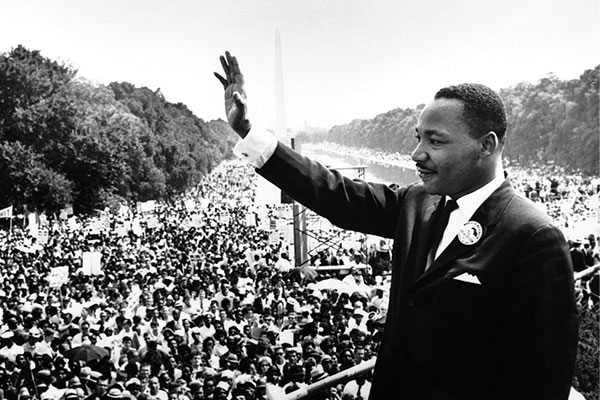Media

Today’s Opportunities in the Spirit of King
It’s been a shame that we’ve collectively spent so much time this month talking about the wrong King (Rep. Steve King) and views that harken back to our worst days. Instead, we should seize opportunities for positive change in the spirit of the King we celebrate each January.
Dr. King’s dream of full inclusion in the American Dream was not based in soundbites and punchy comebacks. To MLK, its foundation was laid in the “promissory note” of the U.S. Constitution. To him, public policies should ensure that this bond applied to all Americans regardless of their ZIP codes or the life challenges they faced.
More work must be done to achieve Dr. King’s bold vision in Pennsylvania—and the responsibility is ours.
Empowering parents with choice when it comes to K-12 education can break the cycles of under-employment and poverty within one generation.
Take, for instance, education equality. During Dr. King’s era, the civil rights battle was for equal access to quality public schools. Today, due to factors including the emerging re-segregation of America’s neighborhoods and deepening disparities between African-Americans and other Americans, civil rights battles include opening the doors for equal opportunity to select the school that best meets a child’s needs.
Empowering parents with choice in K-12 education can break the cycles of under-employment and poverty within one generation. In Pennsylvania, popular programs such as the Educational Improvement Tax Credit (EITC) provides scholarships that give children of all backgrounds a chance at success in an environment that prepares them for personal triumphs and family prosperity.
Unfortunately, politics has limited scholarship programs, leaving more than half of applications unfulfilled each year.
This year, we can follow the spirit of Dr. King and the examples of states like Florida by raising the limits on tax credits to meet student demand for scholarships. This legislation has the power to change children’s futures and build a new pipeline of innovators, entrepreneurs, and professionals that will revive communities that have felt Pennsylvania’s population squeeze.
Civil rights leaders over the decades knew that with better education comes better jobs and self-sufficiency. Yet, they also witnessed the systematic lockout of Blacks and other disadvantaged Americans from employment. Too many able-bodied, work-capable adults are sitting on the sidelines. Initiatives to bring those looking on from the outside into the modern economy provide another bridge towards fulfilling Dr. King’s American Dream.
By promoting career training and job placement as part of Pennsylvania's food stamp and Medicaid programs, we can restore the self-sufficiency and hope for thousands of work-capable Pennsylvanians. In Kansas and Maine, participants in similar programs found their overall household income rose by over 110 percent, while the majority saw their income rise above the federal poverty level.
The freedom to work matters—and it mattered to Dr. King and his allies. Many forget that the 1963 March on Washington where MLK told the world of his dream was officially titled, “The March on Washington for Jobs and Freedom.”
Too often, a criminal record amplifies the scourge of discrimination, destroying any chance for rehabilitation and employment after an individual's debt to society is paid.
Dr. King spoke of freedom rooted in the Constitution that applied to all citizens. That includes the spirit of the Eighth Amendment, prompting us to be smart on crime and fair in our punishments. Yet, our failure to promote equality in the criminal justice system has devalued the promissory note MLK spoke of in 1963. African-Americans face disparities in arrests and incarceration rates, and the poor struggle with the inability of making bail, resulting in lengthened pre-trial detention stays.
Criminal justice reform in Pennsylvania, including the Justice Reinvestment Initiative (JRI) of 2012 and the proposed JRI2, can take a smarter and fairer approach to public safety while optimizing rehabilitation and anti-recidivism measures. Too often, a criminal record amplifies the scourge of discrimination, destroying any chance for rehabilitation and employment after an individual's debt to society is paid.
Thankfully, our prison population has decreased for five straight years due to JRI reforms, while crime rates have declined. Keeping more families intact by improving sentencing and updating our antiquated probation and parole practices will open opportunity for more Pennsylvanians. This helps create the level playing field that King extolled in 1963—a constitutionally-prescribed equality that allows one to overcome challenges.
These days, it is wise for us to maintain our focus on the right King and to avoid the antiquated narrow-mindedness of another. By implementing education equality through school choice, promoting self-sufficiency through work, and creating a fairer, rehabilitative criminal justice system, we pay forward the promise of the American Dream in a manner consistent with the spirit of Dr. King.